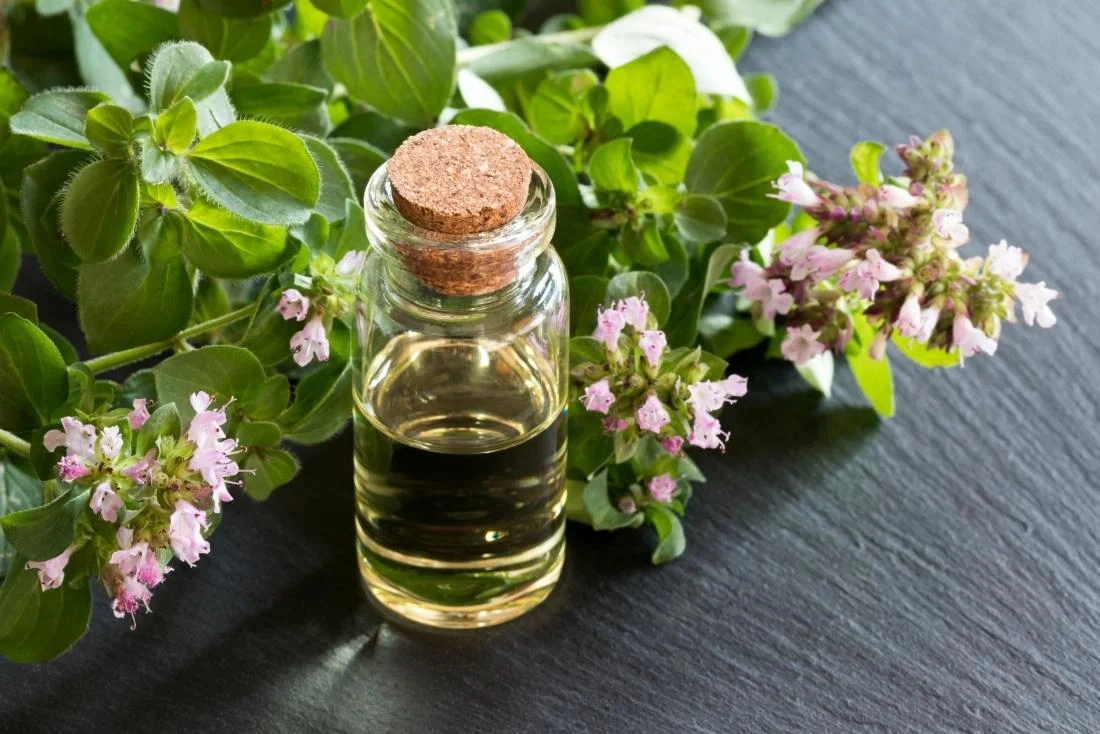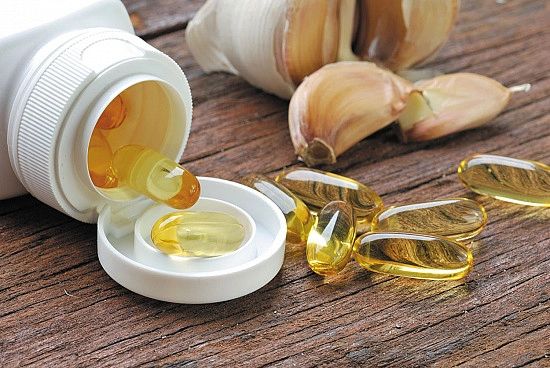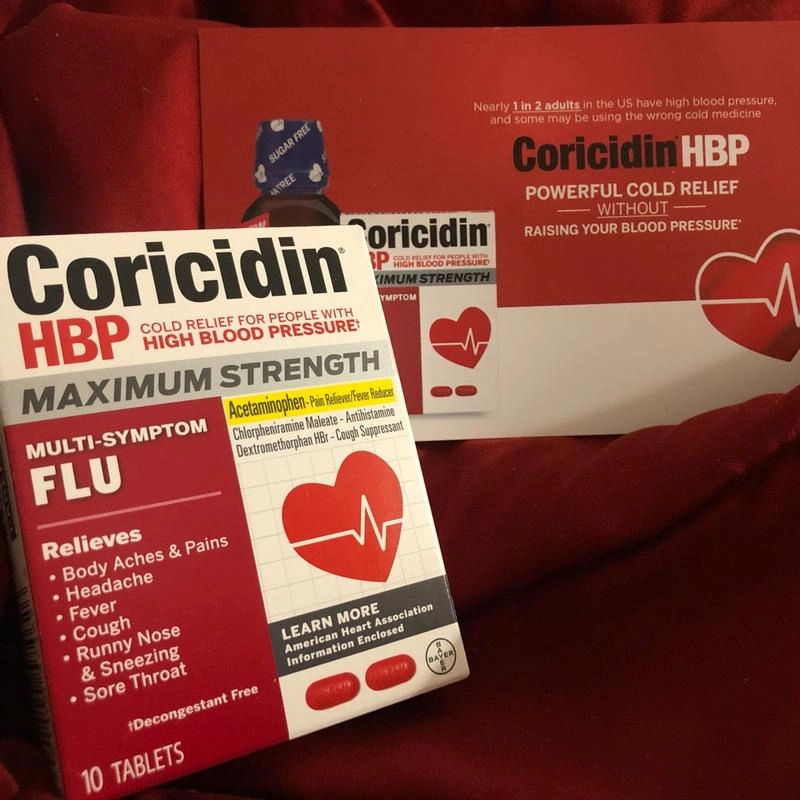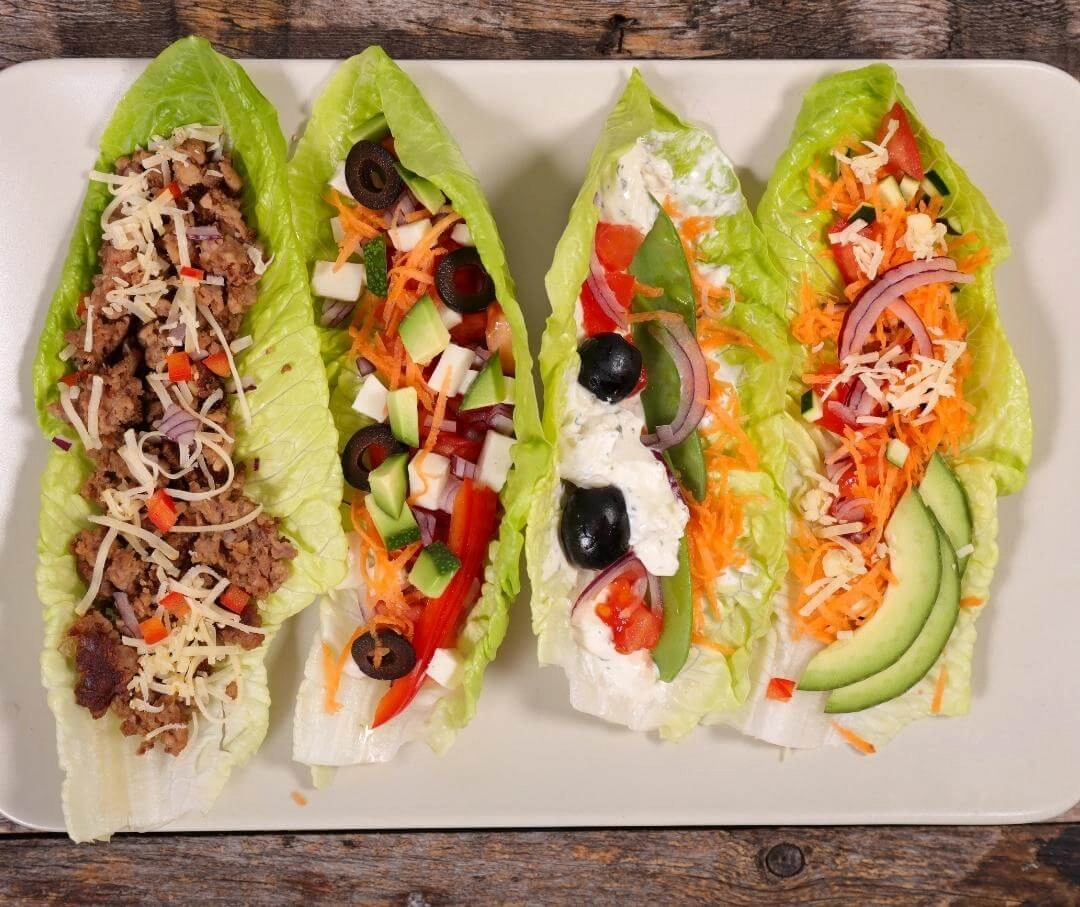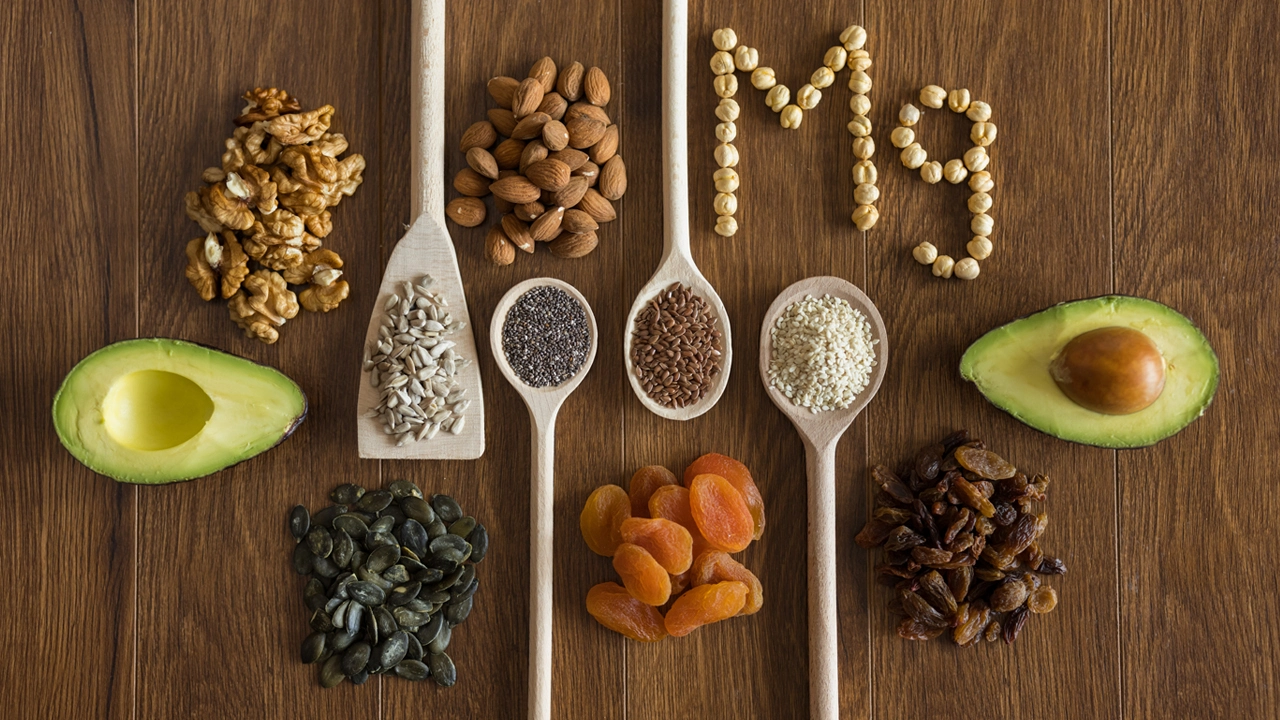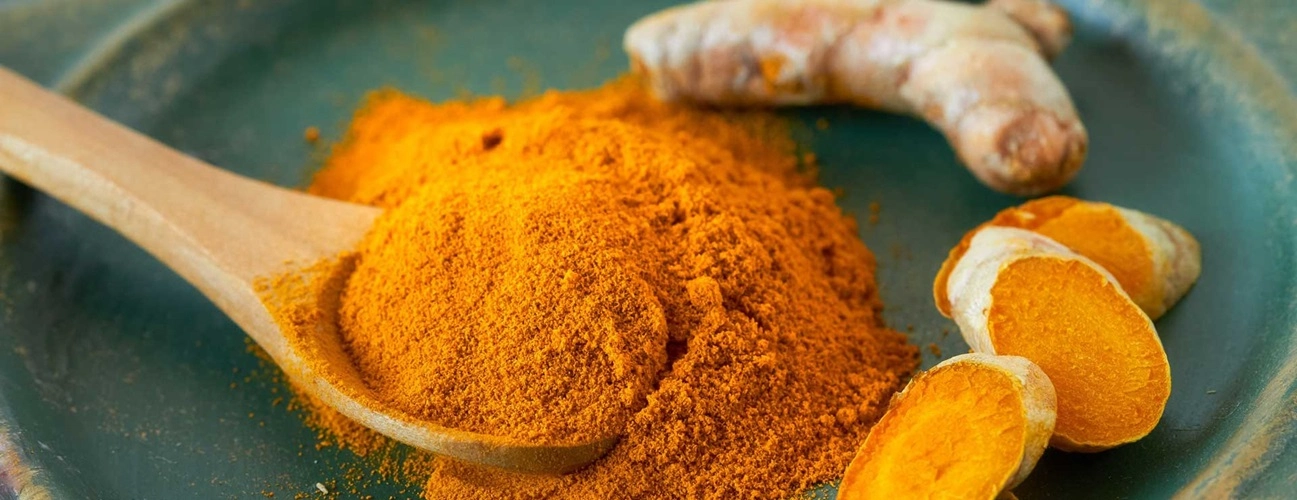Healthy Eating for Beauty: Beauty begins on the inside, and one of the most significant things that can affect your complexion and appearance is what you eat. The truth is that our diet has a big influence on the health and appearance of our skin, even though many of us concentrate on skincare products and treatments to get a glowing complexion.
Maintaining good skin requires eating a balanced diet, which can also help avoid many common skin issues like dryness, wrinkles, and acne.
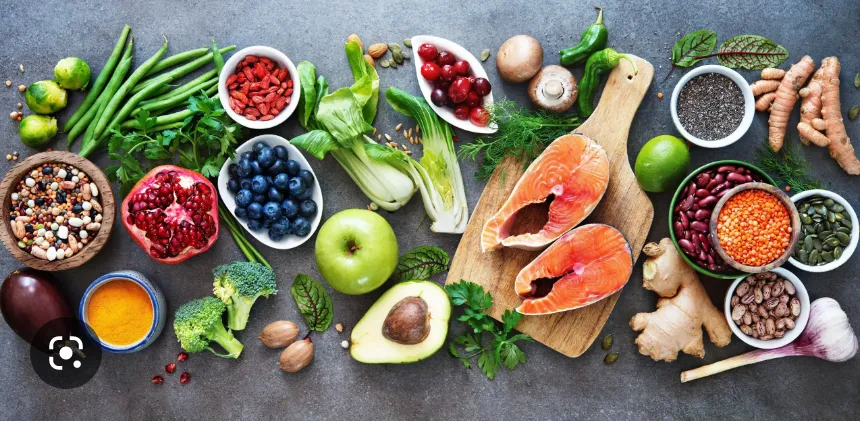
Cells and bacteria make up your entire body, and the composition of that fabric has a significant impact on both the integrity and health of your skin. Because nutrients get to more vital organs first, your skin, hair, and nails receive the least amount of them. Your skin will starve if you don’t obtain adequate nutrients.
Skincare and diet are very important; you can eat to maintain a healthy weight, a healthy liver, and beautiful skin. You are simply what you consume.
Healthy diet benefits
A nutritious diet can help you in the following ways:
- Nourishment: You can give your skin the nutrition it needs to feel and look its best by eating a balanced diet rich in fruits, vegetables, healthy grains, and lean proteins.
- Hydration: Sustaining optimal skin hydration requires consuming adequate water. To keep your skin hydrated, try to consume 8–10 glasses of water each day and eat foods high in water, such as cucumbers and watermelon.
- Protection: Antioxidants found in foods like berries, tomatoes, and green tea can help shield your skin from harm brought on by free radicals.
- Inflammation: A diet high in anti-inflammatory foods, such as nuts, fatty salmon, and leafy greens, can help to lower inflammation and support healthy, clean skin.
Apart from the aforementioned advantages, maintaining a nutritious diet will also make you feel better overall, which can improve your appearance. You are more likely to feel and look your best when you are in good health and have plenty of energy.
The Best Beauty Foods
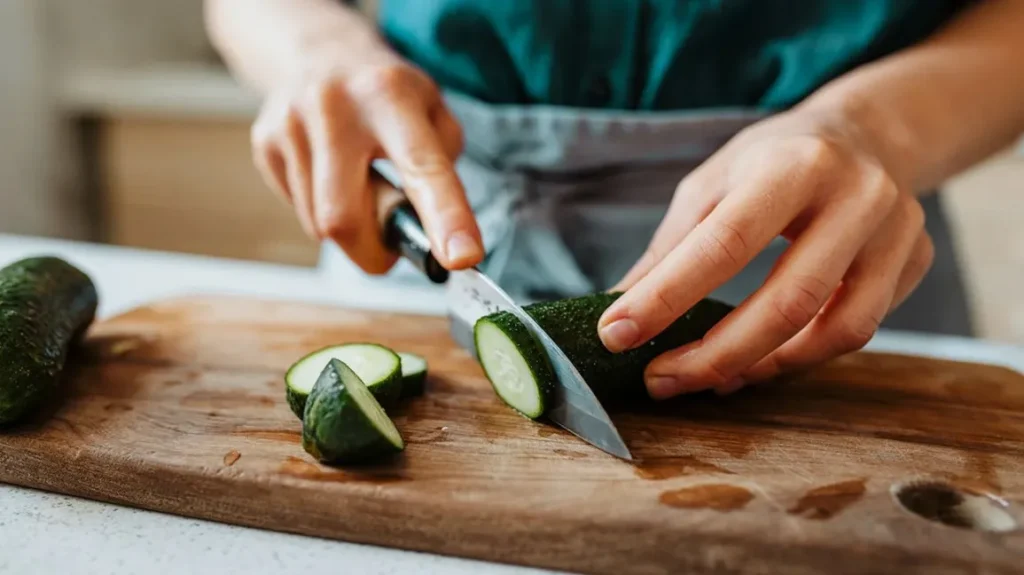
1. Lacto-fermented Foods
Lacto-fermented foods are great for improving digestion because they are predigested by bacteria, making nutrients more available for the body to use. The procedure also produces natural probiotics, which are essential for intestinal health. Studies have also found that a shortage of specific acids in the gut, such as hydrochloric acid, contributes to skin disorders ranging from rosacea to acne.
Lactic acid bacteria can help boost these acids. Prebiotic meals that feed the healthy bacteria in your gut include Jerusalem artichoke, bananas, green vegetables, asparagus, onions, and garlic. Foods high in digestive enzymes, such as papaya and pineapple, can also promote gut and skin health.
2. Anti-inflammatory Foods
Inflammation, which breaks down important collagen, causes a variety of skin problems such as dryness, acne, and loss of skin tone. Lacto-fermented foods, as well as those high in antioxidants and omega-3s, are anti-inflammatory.
Grain-fed meats have inflammatory lipids, but grass-fed meats are high in CLA (conjugated linoleic acid) and omega-3s. Avoid highly processed meals, sugar, alcohol, pasteurized dairy, and gluten, all of which can cause inflammation.
3. Alkalising Foods
Many naturopaths believe that excess acid in the body can cause skin and health problems ranging from arthritis to dermatitis.
The modern diet is high in acidic items like red meat, alcohol, refined carbohydrates, and sugar. Reduce these and consume plenty of alkalising foods, such as lemons, green leafy vegetables, fruit, herbs, spices, and herbal teas.
4. Antioxidant-rich foods
Antioxidant-rich foods are anti-inflammatory and help protect the skin from free radical damage, which causes premature aging. Free radicals are unstable chemicals that naturally traverse our bodies, seeking out and damaging healthy cells. Fruits, vegetables, spices, green tea, and legumes are all good sources of antioxidants.
While oxidation is a natural component of our bodies’ functions, it is worsened by exposure to chemicals and pollution, consuming processed foods, stress, cigarettes, and alcohol, so try to limit these for your health and complexion.
5. Vitamin C-rich Foods
Vitamin C promotes collagen formation and boosts skin immunity. If you want a beautiful complexion, you should buy lemons, camu camu (a cherry-like fruit), acerola cherry, green leafy vegetables, berries, papaya, kiwi fruit, broccoli, and cabbage.
6. Vitamin A
Beta-carotene, also known as provitamin A, helps to revitalize the skin and increases cell turnover, which improves dry, flaky skin. Carrots, sweet potatoes, leafy greens, and seaweed are high in vitamin A. Cod liver oil is another excellent source, and it also contains skin-beneficial vitamin D.
7. Spark up your Skin
Minerals have an important role as catalysts in numerous biological activities, including the production of enzymes, antioxidants, and hormones. They are crucial for skin hydration, resilience, texture, and health. Silica, found in oats, buckwheat, and chickpeas, can help increase skin suppleness.
Pepitas include zinc, which is an anti-inflammatory that can help heal and develop the skin, especially if you have acne or oily skin. Soak grains, seeds, and legumes to minimize antinutrients, improve digestibility, and maximize their nutritional value.
8. Support the Liver
Foods that strengthen the liver are essential for health and attractiveness because it is engaged in every metabolic activity. Increase your intake of sulfur-rich vegetables, such as those from the brassica family (cabbage, broccoli, and kale), and enjoy nourishing, slow-cooked bone broth.
9. Liver-supporting Herbs
Milk thistle, rosemary, fennel, dandelion, and burdock root are plants that benefit the liver.
10. Eat Fat
Consume necessary fatty acids. While omega-6s are necessary, excessive amounts induce inflammation in the body; therefore, avoid processed packaged meals and refined vegetable, seed, and nut oils.
Eat fresh seeds and nuts for omega-6s, and get your omega-3s from fresh fish (particularly cold-water fish), flaxseeds, and chia seeds. Because flaxseeds and chia seeds oxidize quickly, they should only be consumed freshly ground. Krill oil is another excellent omega-3-rich supplement. Other skin-boosting unsaturated fats include olive oil, which should not be heated because it oxidizes, and the fats in avocado.
Cook using saturated fats like red palm oil and coconut oil, which are stable and high in medium-chain fatty acids that are beneficial to digestion, brain function, and skin health.
11. Eat Protein
Insufficient protein in the diet can result in sallow skin and a loss of muscle tone. Protein is essential for collagen synthesis, tissue development, and repair.
It helps to balance blood sugar levels and build muscle, raising the basal metabolic rate, or the rate at which you burn fat. Fish, grass-fed meats, fresh nuts and seeds, and cultured dairy are all excellent sources of protein.
Additional Tips for Healthy Skin
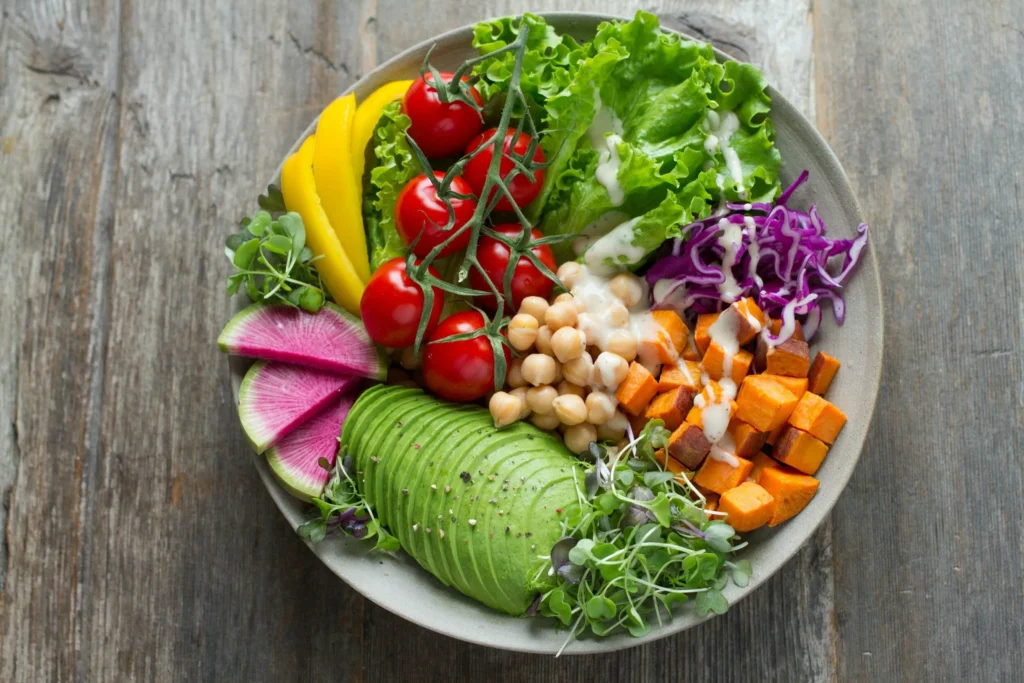
Remember to stay hydrated, as water has a significant impact on the appearance of your skin. Water keeps your skin hydrated, which decreases the appearance of fine lines and wrinkles. It also promotes nutrient absorption, toxin elimination, and blood circulation. Aside from food and drink, it is critical to maintain adequate hygiene.
This means not touching your face until you’ve cleansed your hands. After a long day out, carefully cleanse your face to remove all environmental stressors, such as irritants, allergies, and microorganisms, as well as grime and sweat. If your skin is itchy, breaking out, or irritated, and you’re not sure what’s causing it, consult a dermatologist.

